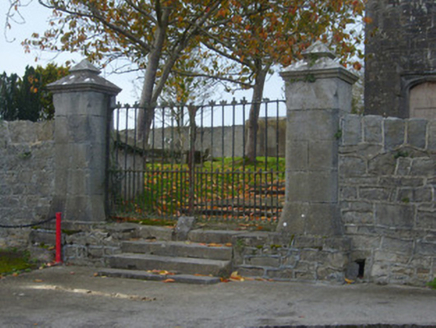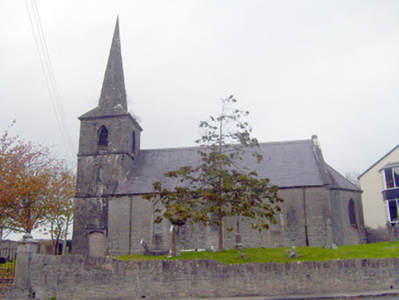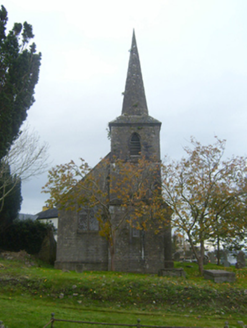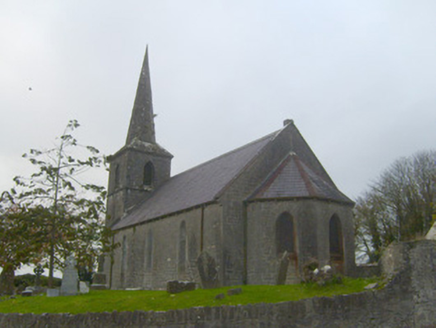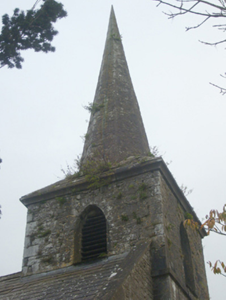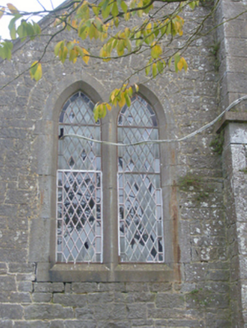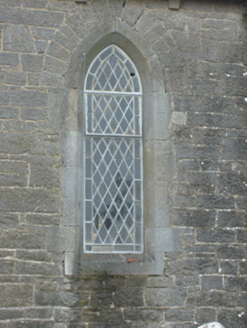Survey Data
Reg No
21803027
Rating
Regional
Categories of Special Interest
Architectural, Artistic, Social
Original Use
Church/chapel
Date
1770 - 1860
Coordinates
162786, 136016
Date Recorded
15/11/2007
Date Updated
--/--/--
Description
Detached Board of First Fruits Church of Ireland church, originally built in 1776, with nave, chancel and vestry added in 1857. Now in disuse. Comprising three-bay nave, square-plan three-stage tower to west and canted chancel to east elevation. Pitched slate roof having cast-iron rainwater goods, cut limestone eaves supports and limestone copings. Octagonal limestone spire to tower. Hipped slate roof to chancel. Snecked limestone walls having cut limestone plinth course, tooled limestone quoins and cut limestone stringcourses to tower. Lancet stained glass windows to nave and chancel with tooled limestone block-and-start surrounds and sills. Pointed arch openings to tower, third stage having louvered vents. Lancet stained glass windows to tower, first stage and second stage with tooled limestone surrounds and sill. Paired lancet stained glass windows to west elevation having tooled limestone block-and-start surrounds and sill. Shallow pointed arch door opening to tower, south elevation with tooled limestone block-and-start surround, carved hoodmoulding and soffits. Graveyard to site. Cut limestone steps to entrance. Pair of cut limestone square-profile chamfered piers having carved caps, splayed plinths and double-leaf cast-iron gates. Flight of limestone steps to gates. Snecked limestone boundary walls to site.
Appraisal
This Early English style Church of Ireland church incorporates material from the eighteenth and nineteenth centuries. It was the burial place of the Hartstonge family. The present church was dedicated on the 30th July 1859. It is prominently sited and is of high quality design and execution. The limestone dressings and snecked walls create interesting textural variations, which enliven the façade. The boundary walls, stone piers and cast-iron gates enhance the setting, whilst the tall spire marks the building in the Bruff skyline.
